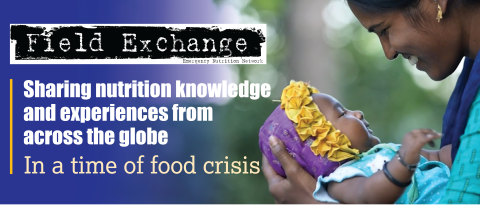Building upon the Women’s Empowerment in Agriculture Index
This is a summary of the following paper: Heckert J, Martinez E, Seymour G et al (2022) Development and validation of a health and nutrition module for the project-level Women’s Empowerment in Agriculture Index (pro-WEAI+HN). Maternal & Child Nutrition. https://onlinelibrary.wiley.com/doi/epdf/10.1111/mcn.13464
Improving gender equality and empowering women – who make up 49.58% of the global population, and whose agency has been impeded throughout much of human development – is a central component of the Sustainable Development Goals. Agricultural development projects readily target women by incorporating gender-sensitive objectives to address the underlying drivers of malnutrition. Great strides have been made in quantifying women’s empowerment within this field, as seen by the development of the Women’s Empowerment in Agriculture Index (WEAI) and the Women’s Empowerment in Livestock Index, to name a few. Yet there remains no standardised measure of women’s empowerment focusing on nutritional outcomes that is also validated in multiple contexts. Without such data, it is not possible to determine how nutrition-sensitive agriculture programmes contribute to women’s empowerment.
In this paper, the researchers have developed a health and nutrition ‘module’ (questionnaire) for the project-level WEAI (pro-WEAI+HN) to measure health-related and nutrition-related agency. The study used data from six projects across two distinct regions: Bangladesh and Burkina Faso/Mali (n = 12,114). The module was designed to be administered to women participants and considered all three pillars of the food, health and care paradigm (nutritious foods, healthcare utilisation and caregiving practices, alongside agricultural production); key life stages (infancy, early childhood, and pregnancy and lactation); and animal-source food consumption (women often face barriers to accessing these nutrient-dense and often culturally valuable foods due to entrenched societal norms). Although integral components of a diverse diet, fruits and vegetables were not considered in the module as women do not face the same barriers when accessing this food group compared to animal-source foods.
The results highlighted seven indicators, covering a woman’s decision-making ability in the areas of her own health and diet; her health and diet during pregnancy; her child’s diet; breastfeeding and weaning; purchasing food and health products; and acquiring food and health products. The analysis indicated that this module (pro-WEAI+HN) measures aspects of decision-making that are distinct from the previously used questionnaire (core pro-WEAI), highlighting the increased value provided by this expanded methodology. This led the authors to conclude that uptake of these indicators when studying nutrition-sensitive agricultural development projects may in turn strengthen the evidence on how these programmes can enhance women’s empowerment. Such empowerment can then serve as a vehicle to improve health and nutrition outcomes for both women and their children.
A detailed breakdown of the methodology used by the researchers is beyond the scope of this summary (although this can be accessed via the link provided at the top of this review), although both the process and findings were robust, with a clear breakdown of study limitations included in the discussion. The findings can therefore be interpreted with a high degree of confidence.


